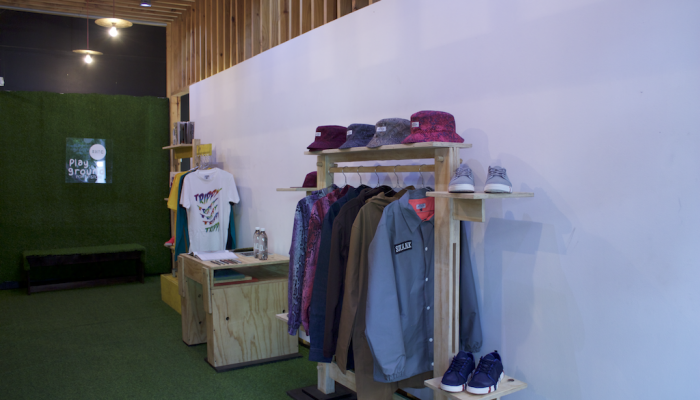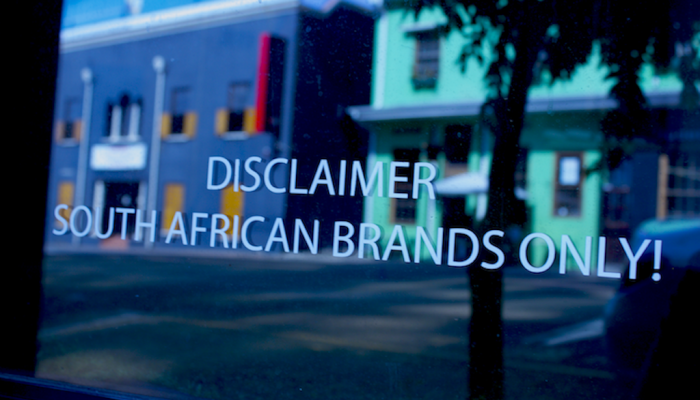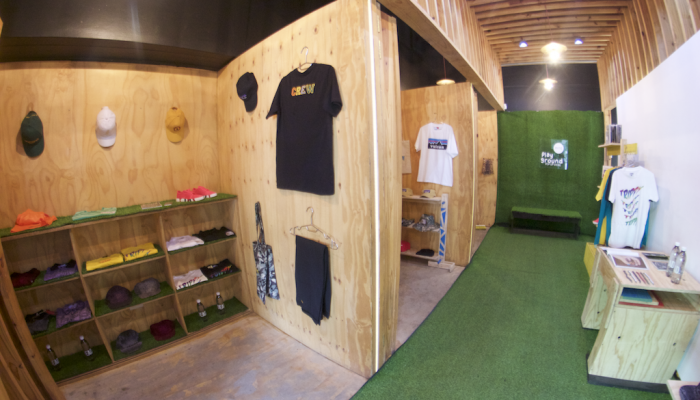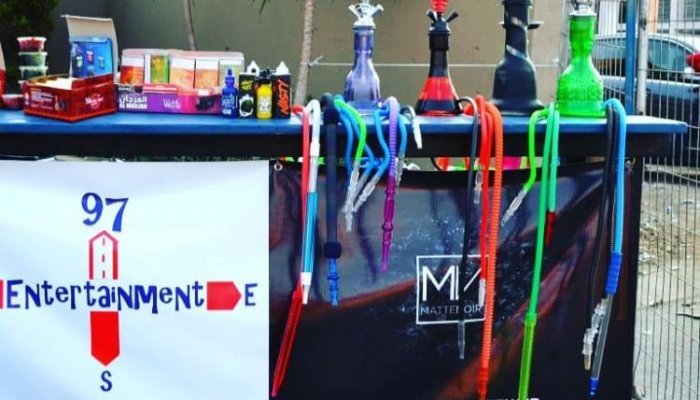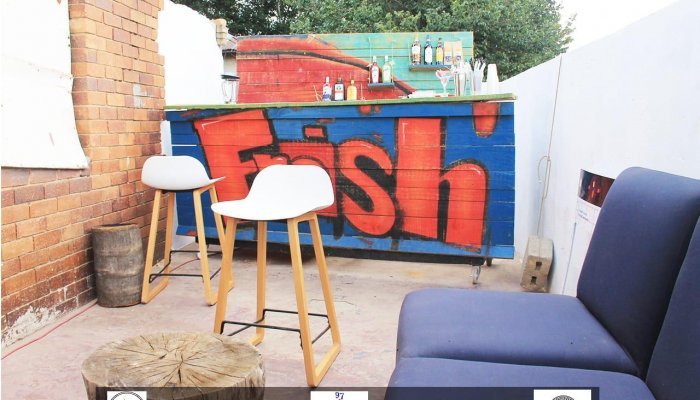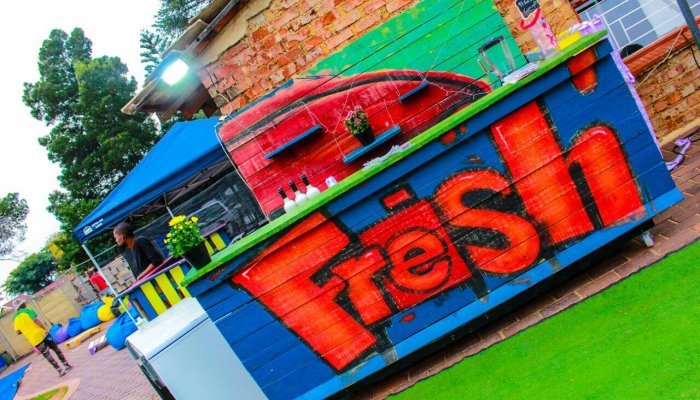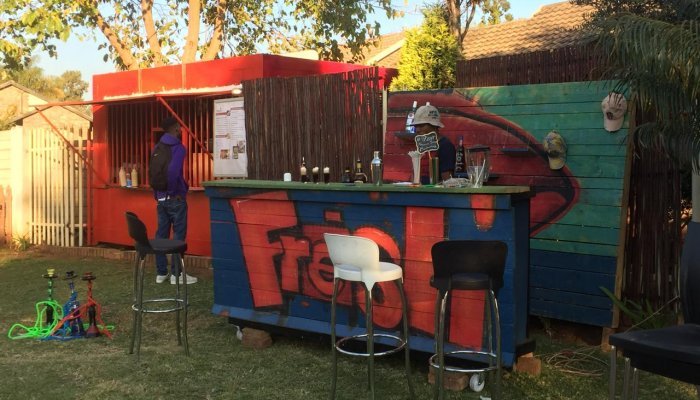Pop-up stores to some are a testing ground and a place to expose their products. To others, however, they have replaced the traditional way of owning a store.
These, traditionally, are makeshift stores that open up for a few weeks or months in vacant retail spaces, development sites, or promotional areas. They operate in what would otherwise have remained unused retail and rental space.
According to Linda Mathithibale, owner of Johannesburg-based Kwa-Shandu pop-up store, pop-ups are popular mainly because they are convenient, attract new customers together with existing ones, and they give you access to being part of your customers' leisure activity areas, such as markets.
...the Millennial consumer is a complicated customer...
Keep it lean
However, financial analyst Bandile Mathandela says the sudden popularity of pop-up stores is attributable to costs.
“Rent in lucrative locations is extremely expensive, which makes it difficult for stores to pursue the traditional brick and mortar approach,” says Mathandela.
Going back years before the concept of pop-ups, when entrepreneurs thought of getting into retail, renting space was top of their budget. But, according to Scan Retail, pop-ups bridge the gap for start-ups by providing them with a low-risk chance to have a physical store without the long-term obligations, opening the door for thousands of small brands, both seasonal and permanent.
Mathandela adds that pop-up stores enable an entity to operate the business during peak times, thus maximising profits and drastically reducing costs.
In agreement with Mathandela, owner of the RHTC Playground store in Braamfontein, Mpumelelo "Frypan" Mfula, believes that pop-ups are more popular now because they are mainly a test concept and also serve as a cost-effective way to move from an online space to a physical space for customers who want to physically interact with products and brands.
Millennials
Mathandela believes that the Millennial consumer is a complicated customer and is proving to be quite a challenge for retail clients. The overall client experience is becoming more important than the actual product itself. He adds that entities that are failing to provide the overall experience are getting left behind. Pop-up stores enable an entity to tailor the experience and thus expand the consumer base.
...pleased customers return, pleased customers spread the word.
With leading end-to-end industry service provider in the US, PopUp Republic, valuing the industry in that country at $50 billion, it’s clear that pop-ups have become a huge money spinner.
In South Africa, it’s no different. Have you ever noticed a pop-up store selling beautiful denim jackets at a market? You turn your back for an hour or two and race back to find them all gone? Yes, that is the power of pop-up shops.
Mathithibale says the goal is to provide service or product to customers closer to where they live and where they spend most hours of their day, school or work, depending on the target market. Reaching out and interacting with customers creates a bond, giving them more reason to want to support your pop-up store.
He adds that it is always good to keep in mind that pleased customers return, pleased customers spread the word. This can directly result in free marketing and attracting potential customers.
However, Mfula says he believes that a lot of businesses would like to have permanent, long-term physical space to operate from. Consistency helps businesses sustain returning customers if the business and marketing are well maintained.
“Pop-ups, in this case, can be used as means to test location and settle at the most conducive geography," says Mfula.
What's the difference?
So what, then, do pop-ups provide that traditional stores don’t?
Mfula says pop-ups are much more exciting for customers because of their surprise factor in a community that hadn't been expecting such-and-such an offering or a new aesthetic. The idea that the space won't be permanent also adds to the excitement.
On the downside, he adds that the challenge for the store then becomes how to maintain the excitement and retain the attention beyond the pop-up fever.
Mathandela says traditional retailers are not agile and cannot reach the consumer in the same way a pop-up can. Furthermore, the luxury of lower costs for the pop-up could mean a more competitive price for the consumer.
Speaking to our experts, two important questions emerged: "Having run or organised a pop-up store, what are some of the challenges you faced that are as a result traditional industry practice? And what needs to be more flexible in order for entrepreneurs to operate unconventional store-based shopping?"
Bandile Mathandela:
· One of the biggest things with regards to a pop-up store is location. It is worth spending an amount of time upfront researching the correct location for a pop-up. A chesa nyama pop-up will serve no purpose in Hyde Park mall.
· The next challenge is around marketing and ensuring that you have communicated to the consumers, that you will be at a certain location at a certain time. Due to the short nature of pop-up stores, it is of paramount importance that the pop-up gets the timing, marketing and location correct.
· Lastly, another challenge is one of staffing. A pop-up requires a vibrant sales team who understands the brand and is able to interact with people passing by. A large majority of the customers at a pop-up are first timers and thus may need some brand/product education. A competent sales team is essential.
Mpumelelo “Frypan” Mafula:
· A majority of commercial and high traffic retail spaces are still designed in a way, and charge premium rates, that do not allow new and young entrepreneurs to enter the market with their concept or pop-up stores. This makes entry into market a great challenge and thus results in fewer entrepreneurs participating and as a result slowing down entrepreneurship culture in SA.
· Premium rental rates make maintenance and development of youth entrepreneurship a great challenge for existing businesses.
Linda Mathitibale:
· Concept stores offer what sells the most, the people’s favourite. Offering what is popular with the masses helps with the travel logistics, creating space and an open and easy to move around environment. The problem occurs when a customer wants what’s not ‘popular’ (not being served on the day) and feels they are not catered for or neglected.
· There is never enough time, it’s a high-pressure environment and you have to make the most from the hours or time period at hand. Figuring out the most convenient location that has a large number of people you are targeting is difficult at times.
According to retail display specialist, Scan Retail, requiring less commitment than a permanent shop or a new and expensive website, pop-ups have huge potential to generate the type of attention required to create the offline-to-online sales conversion.
Like every other business, one questions the sustainability of the whole concept of pop-ups. Ten years down the line, will the idea still be lucrative and as exciting to the consumer?
Mathitibale says the pop-up model can be sustained by making sure that one is at the right place at the right time. In order for growth, one needs to study trends by always conducting research to get a successful end result.
Mathandela believes that the pop-up model is still in its infant stage and will continue to evolve as more and more people become innovative around the idea.
Ten years down the line, will the idea still be lucrative and as exciting to the consumer?
“I do think though that this model is most suitable for new businesses and that as the business grows and a company begins to establish a consumer base, there comes a need to have a brick and mortar store which consumers can always access,” adds Mathandela.
In agreement, Mafula says he believes that the model of the pop-up space will have to evolve to permanent spaces that are low cost in building and sustaining, to allow more entrepreneurs to enter the market, exist and scale at a more cost-effective manner.
So what kind of merchandise or goods are best suited to attracting the kind of clientele that makes a pop-up store profitable? Could it be an experience-based thing or is there a different element that all pop-up stores have that creates the frenzy we see around them?
Mathandela says he believes a large part of it is around experience. “I think it is more suitable for stores that have limited edition items or out-of-season items. There is almost an artisan feel to pop-up stores. Things like grocery stores need not innovate to pop-up stores. They should remain brick and mortar," he says.
Mathithibale adds that the best merchandise to attract customers is based on current trends. When you know what your customer likes, introducing new products becomes easier for a business.
Yet, Mafula says pop-ups, being temporary in nature, normally have marketing as one of their key goals. Selling at attractive prices is therefore a definite pull.
“Offering exclusive and limited products or services is another factor as well as including a lifestyle element, like a launch event or a weekend activation, may also be an effective way to create buzz around a pop-up,” says Mafula.
Customers have more options at their fingertips, in essence, pop-ups are not just about selling. According to Scan Retail, today’s customers want experiences, not things, and pop-ups are all about creating memorable, exclusive, and photogenic experiences, which lend that “cool” factor to a brand.
Six ways to run a successful pop-up store:
1. Market research (identify target market)
2. A good product
3. A great setup – simply setting up a counter and shelves is not enough
4. A good marketing and communications strategy
5. A competent sales team
6. A great location
The order of importance will vary with each store depending on various things such as product and duration.


